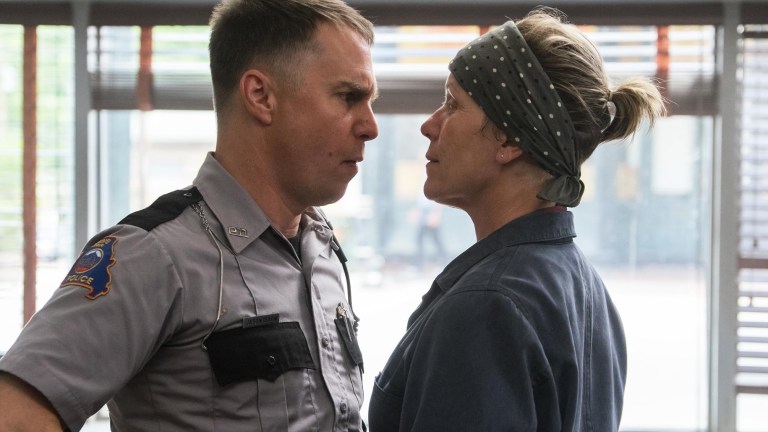
10 Important Things All Healthy Couples Talk About (Before Getting Engaged)

1. Your fears and insecurities.
Being self-aware is a key attribute to have not only in life but especially in relationships. Being able to identify the things that make you feel insecure or afraid and openly discussing them with your partner is crucial to maintaining a healthy relationship. If you and your partner are aware of the things that you’re sensitive to you can avoid potential problems in the future and recognize when you’re behavior is a trigger for their issues.
2. Being friends with your ex-lovers/partners.
Some people just aren’t comfortable with their partner being friends with an ex while others don’t see any issue as long as it’s clear there aren’t any lasting romantic feelings towards that person. This is something that needs to be discussed (and usually is) in the beginning stages of a relationship but is a major topic many overlook or try to avoid, something that only leads to issues later. It’s important you know who’s in your partners life just as it’s important they should know who is in yours.
3. How you handle conflict
Healthy couples are aware of how they handle stressful times. It’s important to examine the way situations are dealt with and then once things have cooled off talk about how you two can better understand each other in the future. If your boyfriend or girlfriend needs a cooling off period after a fight where they just need a few hours or a night to themselves that’s something you need to respect just as they need to respect how you deal with your emotions. Healthy couples never fight dirty and know how to comfort each other when they’ve just dealt with a stressful situation.
4. Your 1-year, 3-year, 5-year goals
Where do you want to see yourself in a year? Three years? Five years? These are important things to know. In a successful partnership it’s not only about identifying your individual goals but your goals as a couple. Your partner is there to lift you up and support your dreams while also helping you stay realistic. Each of you should have independent lives and goals for yourself while also building towards goals that unify you and strengthen you as a couple.
5. Religious views (and how it will impact the relationship and future)
This is extremely important (obviously). Discussing what you believe in and what your expectations are for your relationship and potential marriage and family are should happen within the first year of a relationship. If you or your partner is a strong atheist while the other is a devout Catholic you need to figure out how or if this can impact your relationship later on (because it can and it will). How will this affect how you raise your children? Will one be expected to attend religious services? Healthy couples openly discuss their spiritual beliefs and how they can respect each other’s views while maintaining their own ideas.
6. Financial obligations and goals
This goes along with your overall goals in the next 1-5 years. Are you in debt and thinking about bankruptcy? Is your credit score impeccable and you’ve never had money issues? Do you plan on owning a house in the next few years or are you fine with happily renting for the rest of your life? Money and finances are one of the leading causes of marriages ending so it’s important and absolutely necessary to reveal your financial issues (if any) and what you plan on working towards in the next several years.
7. Ideas about personal space and alone time
We all have different ideas on what we need to be happy and comfortable in a relationship when it comes to time spent together. If you’re someone who needs a lot of time by themselves to recharge then that’s probably something you should communicate to your partner early on in the relationship if they’re someone who needs a lot of attention and affection. Happy couples are aware of how social (or not) each other is and they work on giving each other the right amount of space while also making sure they’re spending time together regularly either on one-on-one or in social settings.
8. Health histories (mental and physical)
If you can’t have children, have had any STDs or major health concerns, are taking prescriptions for mental illness, or any other issues these are all things you should disclose to your partner if you’re planning on the long term with them. It’s important for both people in a relationship to be aware of potential health issues that can come up in the future that could impact the relationship. Also, this is just an important thing to know so you can be conscious of how to take care of them when/if the time comes.
9. What your bottom line is (what you refuse to give up).
Maybe your partner absolutely hates your best friend or you have a vice that seems to just get on their nerves. No one in a relationship is perfect, obviously, but healthy couples discuss their bottom line (the things they aren’t willing to sacrifice) and how they can work around them. So maybe this means you (as a couple) don’t hang out with the best friend you can’t seem to get along with or maybe you promise you’ll cut back on how much coffee you drink or you’ll make a concentrated effort to stop smoking. Healthy relationships are all about identifying each other’s strengths and weaknesses and figuring out how to happily compromise.
10. Recurring conflicts
Okay, so say the bottom line from the point above is something you just keep having issues with. Are your partner’s weaknesses (or things you don’t like about them in general) something you can live with? Can you find beauty within the ruins? This is something you have to figure out before you get engaged because those recurring issues will only create cracks in your relationship if you don’t actively work to get through them. ![]()











